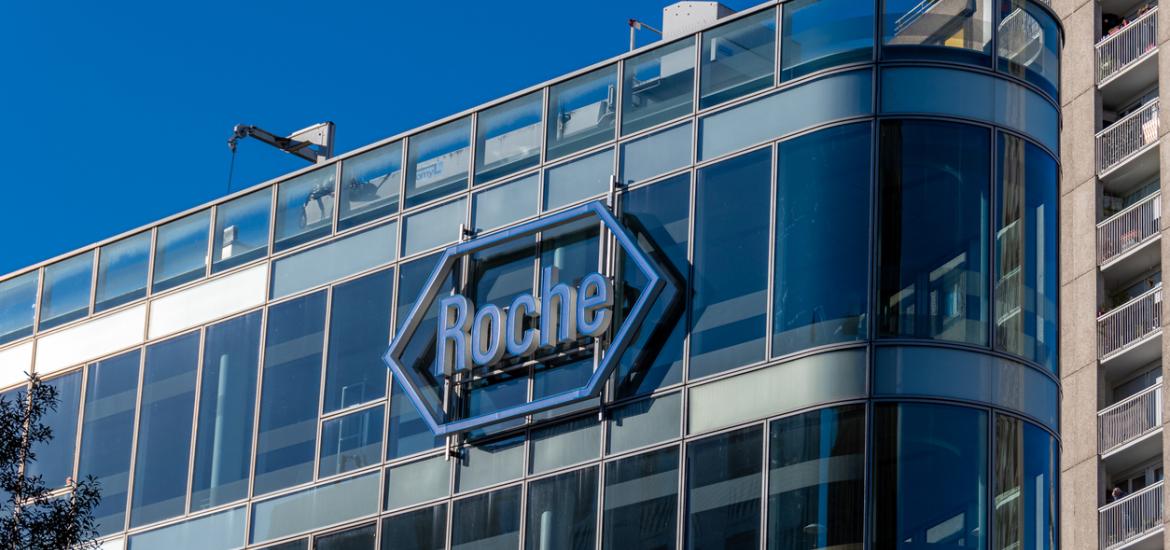
5,000 patients later Roche scraps its TIGIT
Tiragolumab failed the Skyscraper-14 and 03 studies, Roche quietly reveals.
Tiragolumab failed the Skyscraper-14 and 03 studies, Roche quietly reveals.

The final remaining hope for Roche's anti-TIGIT MAb tiragolumab, a pivotal study in first-line liver cancer, is no more. The Skyscraper-14/Imbrave-152 trial failed for progression-free survival, and showed no trend to an overall survival benefit, Roche quietly revealed in its second-quarter presentation on Thursday.
This is a remarkably low-key end for what was once Roche's key immuno-oncology hope, and with Roche also revealing the failure of the Skyscraper-03 study tiragolumab has been removed from the company's pipeline. True, TIGIT has widely disappointed throughout biopharma, but the failure of Skyscraper-14 to replicate a positive result in the Morpheus-liver study will continue to vex.
It was the Morpheus-liver data, reported at ASCO in 2023, that positioned first-line liver cancer as a major hope for the TIGIT mechanism, forming a blueprint for Skyscraper-14, where tiragolumab was combined with Tecentriq and Avastin and compared against Tecentriq and Avastin alone. One problem was that Morpheus-liver's control cohort underperformed, but that was counteracted with a retrospective analysis.
Until Skyscraper-14 data are presented in full at a medical meeting – assuming that this even happens – it's impossible to determine what precisely went wrong. Meanwhile, Skyscraper-03, testing tiragolumab plus Tecentriq versus Imfinzi in front-line maintenance of stage III lung cancer, was on Thursday also quietly revealed to have failed for PFS.
These developments have come months after Roche revealed the abandonment of tiragolumab in oesophageal cancer (Skyscraper-07 and 08) and head and neck cancer (Skyscraper-09). A small, phase 2 solid tumour study, Skyscraper-11, was never formally declared a failure, but as this was last mentioned in mid-2024 it is assumed also to have quietly been ditched.
Thus the sorry roll call of Roche's TIGIT adventure amounts to 12 key phase 2 and 3 studies that together had sought to enrol nearly 5,000 patients. Still in play, of course, are Arcus/Gilead's anti-TIGIT MAb domvanalimab, and AstraZeneca's anti-TIGIT x PD-1 bispecific rilvegostomig.
Roche's tiragolumab post-mortem
| Study | Setting | Data | N |
|---|---|---|---|
| Skyscraper-01 | 1st-line PD-L1+ve NSCLC | Failed for PFS & OS | 620 |
| Skyscraper-02 | 1st-line SCLC | Failed for PFS & OS | 490 |
| Skyscraper-03 | 1st-line maintenance in stage III NSCLC | Failed for PFS | 829 |
| Skyscraper-04 | 2nd-line cervical cancer | Failed for ORR | 172 |
| Skyscraper-05 | Periadjuvant NCLC | Discontinued Jul 2024 | 50 |
| Skyscraper-06 | 1st-line non-squam NSCLC | Failed for PFS & OS | 542 |
| Skyscraper-07 | 1st-line maintenance in oesophageal squam cell cancer | Failed for PFS & OS | 760 |
| Skyscraper-08 | 1st-line oesophageal cancer (Asia) | Discontinued Jan 2025 (outdated comparator) | 461 |
| Skyscraper-09 | 1st-line head & neck cancer | Discontinued Jan 2025 | 123 |
| Skyscraper-11 | 2nd-line solid tumours | Abandoned 2024 | 60 |
| Skyscraper-14/ Imbrave-152 | 1st-line liver cancer | Failed for PFS, no trend to OS benefit | 650 |
| Skyscraper-15 | Adjuvant PD-L1+ve stage IIB-IIIB NSCLC | Discontinued Jul 2024 | 56 |
Source: OncologyPipeline.
Given the tiragolumab discontinuation Roche's other pipeline moves, as revealed in its second-quarter report on Thursday, will take a back seat. But they are significant nevertheless.
Gone, for instance, is the anti-PD-1 x IL-2v fusion protein eciskafusp alfa, a project for which no data had been released, but which had remained in a phase 1 solid tumour trial after its bladder cancer study study was removed from clinicaltrials.gov. This leaves the way potentially clearer for IBI363, an anti-PD-1 x IL-2α-biased fusion protein that is Innovent's lead oncology project.
That said, Roche's discontinuation suggests that this is a risky approach. Similar work continues clinically at Regeneron with REGN10597, a PD-1-targeted, receptor-masked IL-2, and Teva with TEV-56278, which appears to be a PD-1-inactive molecule designed to deliver IL-2 to PD-1-positive T cells.
Discontinuation of the USP1 inhibitor RO7623066, licensed from KSQ Therapeutics, had been on the cards since the molecule put up dismal phase 1 data at ASCO 2024, so the main surprise will be what took Roche so long. The second-quarter update also lists the discontinuation of the Bayer-derived Werner helicase inhibitor RO7589831, but that had already been disclosed last month.
In better news Roche reveals the advancement into phase 1 of the pan-RAS inhibitor RG6505. This is presumably the same molecule that's separately coded RO7673396, which ApexOnco in March reported as starting its first-in-human study.
Roche's other Q2 2025 oncology moves
| Project | Mechanism | Note |
|---|---|---|
| In… | ||
| RO7673396/ RG6505 | Pan-RAS inhibitor | Confirms identity of molecule that entered ph1 in Apr 2025 |
| ...and out | ||
| Eciskafusp alfa | PD-1 x IL-2v fusion protein | Ph1 bladder cancer study earlier marked “withdrawn (sponsor decision)” on clinicaltrials.gov |
| RO7623066/ RG6614 | USP1 inhibitor (ex KSQ) | Disappointed in ph1 at ASCO 2024 |
| RO7589831/ RG6457 | Werner helicase inhibitor (ex Vividion (Bayer)) | Disclosed as having been handed back to Bayer in Jun 2025 |
Source: Q2 2025 report.
11174













